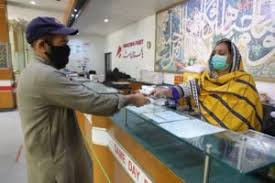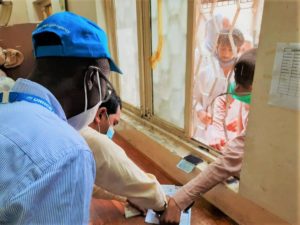75,000 Afghan refugee families impacted by COVID-19 received emergency cash

Islamabad: UNHCR, the UN Refugee Agency completed the disbursement of emergency cash assistance for 75,000 vulnerable Afghan refugee families that have been the hardest hit by the coronavirus pandemic.
More than 1.4 million registered Afghan refugees are hosted in Pakistan. Due to the COVID-19 pandemic, their ability to work and earn a minimum livelihood, mainly as daily wage earners, has been severely affected.

In response, UNHCR launched an emergency cash programme in May 2020. The programme mirrored the Government of Pakistan’s Ehsaas social protection programme under which vulnerable Pakistani families receive a one-off cash grant of Rs. 12,000. UNHCR’s support helped vulnerable refugee families meet their critical needs, such as food, health, education, as well as rent and transportation.
UNHCR’s cash assistance programme was established and rolled out in collaboration with the Ministry of States and Frontier Regions (SAFRON)/Commissionerate for Afghan Refugees (CAR), the Pakistan Post, some partner NGOs, and a network of refugee volunteers and community leaders. Using vulnerability criteria, this volunteer refugee network supported the process of identifying the neediest refugee families.
The UNHCR Representative in Pakistan, Ms. Noriko Yoshida, said, “Cash assistance to 75,000 refugee families is about leaving no one behind, as the COVID-19 pandemic does not discriminate.”
“With the support of the Government of Pakistan and the international community, emergency cash assistance has made a difference in the lives of refugees during this very challenging time. The assistance has not only allowed refugees to meet their immediate needs in dignity but has also been a gesture of the solidarity,” she added.
UNHCR’s emergency cash programme has supported a total of 450,000 Afghan refugees in Pakistan. One out of every three Afghan refugees has benefitted from this support.





